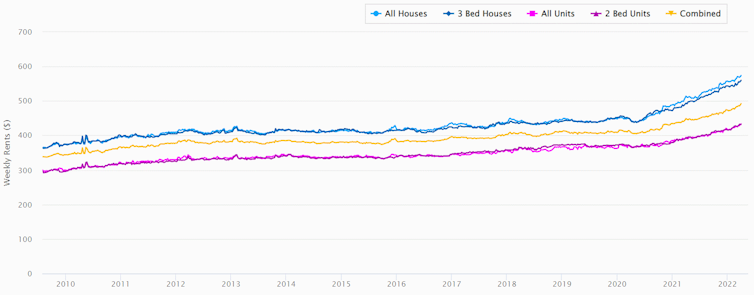Renters spend 10 times as much on housing as petrol. Where's their cost-of-living relief?
- Written by Joey Moloney, Senior Associate, Grattan Institute

If the pre-election budget was designed to address the cost of living, it missed something. In an effort to help those whose wages aren’t growing as quickly as prices, it offered
But it failed to offer help to some of the Australians who need it the most.
Australians only spend 3 per cent of their incomes[1] on petrol. The typical renter spends more than 10 times[2] as much on rent.
After a minor and temporary reprieve early in the pandemic, advertised rents are again on the rise – up nearly 10%[3] over the last 12 months.
Weekly rents, national







